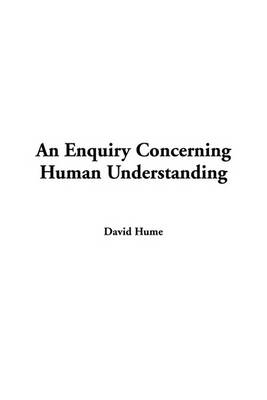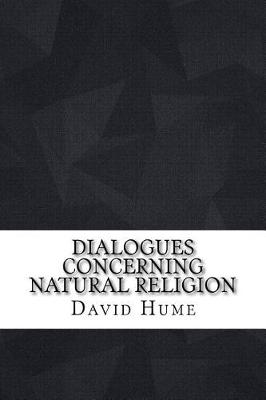Dover Philosophical Classics
3 total works
How do we come to have ideas about the world and about the relationships of objects we perceive therein? Is all impressed upon the senses from outside or does the human mind have a significant role to play in how such concepts as "causality," "probability," "necessity," "contingency," "miracles," and others are to be understood? If so, what is the nature and extent of that role?
In this classic work of early modern epistemology, Hume offers important insights about how we come to understand and have knowledge of our world and, in so doing, alter our relationship with it.
In this classic work of early modern epistemology, Hume offers important insights about how we come to understand and have knowledge of our world and, in so doing, alter our relationship with it.
Humankind has pondered many mysteries, but few more enticing than the existence of a divine creator who is said to have set the universe in motion. Imitating the well-known style of Platonic dialogues, the relentless inquirer and empiricist David Hume assembles a group to discuss the existence of God, his divine nature, his attributes, and the point of his creation. How do we come to have knowledge of God? Who has the burden of proof with respect to these matters of intense religious significance, and what sort of proof might gain universal assent? Can one argue from the orderliness of the universe to the conclusion that it must have had a purposeful creator at its helm? Hume has captured the nature of this intense debate in a classic work that has stood the test of time.
Brickhouse and Smith argue, contrary to many modern interpretations of Plato's "Apology of Socrates", that Plato's Socrates offers a sincere defence against the charges he faces. In doing so the book offers an exhaustive historical and philosophical interpretation of and commentary on Plato's "Apology". The authors demonstrate that Socrates' moral and religious principles prohibit him from needlessly risking a negative vote at his trial. By providing a complete commentary, they show that each specific claim Socrates makes in the "Apology" can be construed as a sincere attempt to inform the jury of the truth and convince the jurors of his blamelessness. The effect of these two strategies is a novel interpretation of the "Apology" which sheds new light on various aspects of Socrates' life and philosophy.


